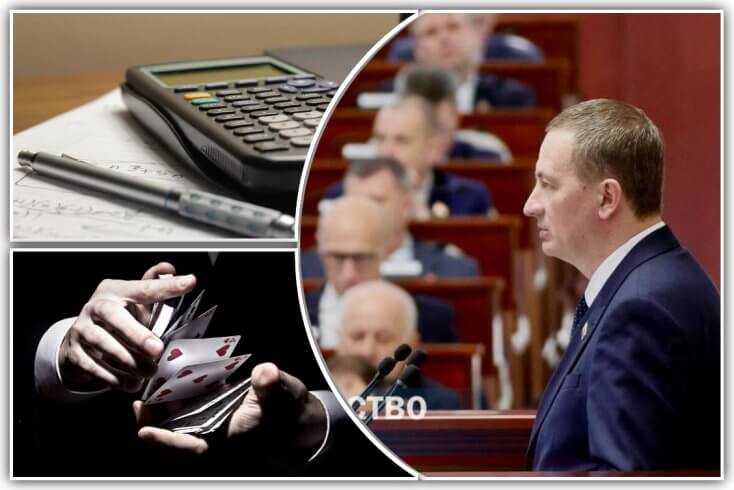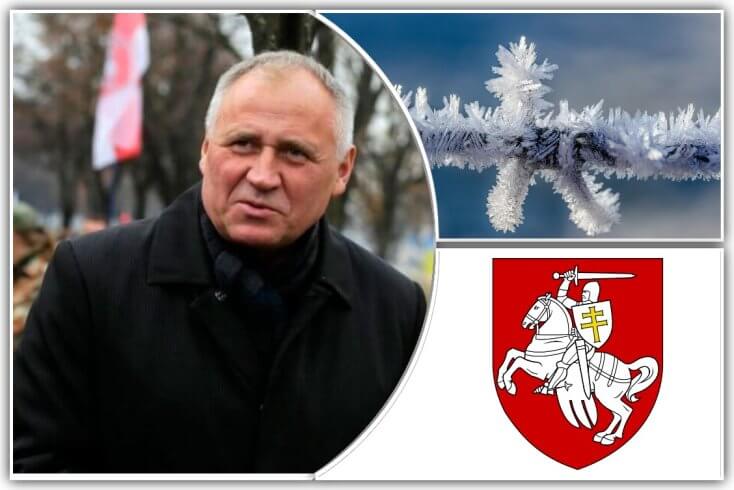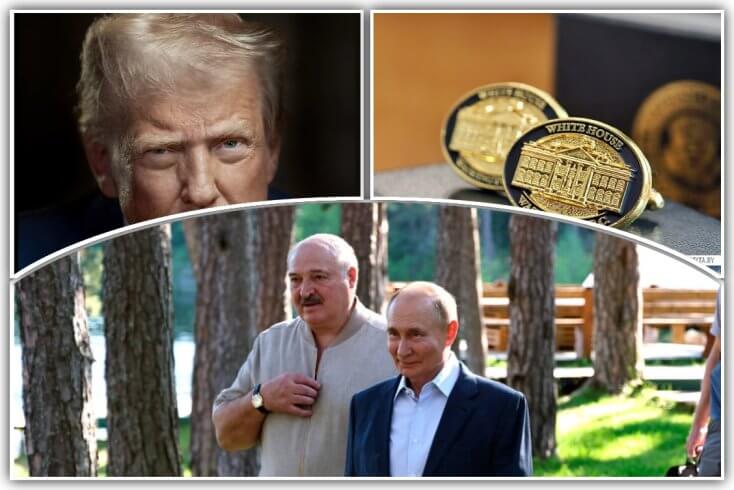Alaksandar Łukašenka continues to blast the United States, but at the same time signals his readiness for a “constructive dialogue” with the European Union. Minsk sees Hungary as an intermediary for contacts with Brussels. Although such a dialogue is possible in theory, the chances of a thaw in Belarus’ relations with Europe are extremely low.
At a meeting with Hungarian Foreign Minister Péter Szijjártó on October 26, and then during his lengthy speech on international affairs on October 27, the Belarusian ruler indicated his willingness to improve relations with the EU.
He praised Budapest’s policies and expressed optimism about the outcomes of parliamentary elections in Slovakia and Poland. Regarding the war in the Middle East, the Belarusian ruler mainly repeated a softer version of the Kremlin’s narratives, and criticized the United States, but stopped short of criticizing the EU.
Łukašenka’s remarks came at a time when the threat of World War III increased dramatically and tension heightened in the EU. Under these circumstances, can Brussels enter into talks with the Minsk autocrat?
Minsk bets on Europe’s fatigue and confusion
This year Łukašenka has repeatedly said that the EU is tired of the war in Ukraine and continues to support Kiev only under pressure from the United States.
The Belarusian leader sees the war in the Middle East as another challenge for Europe. He says that Western countries are sinking into serious internal conflicts and that violence is becoming the order of the day. The humanitarian crisis in Gaza could translate into a migration crisis in Europe, which Vladimir Putin and Łukašenka could use to their advantage under the right circumstances.
The Kremlin and Minsk hope that forces in the West that want the conflicts resolved through negotiations will stop supporting Ukraine and cooperate with the two autocrats. They see the government of Viktor Orbán in Hungary, the new government in Slovakia, and even the change of government in Poland as harbingers of radical changes to come.
Brussels does not consider Łukašenka an independent figure
The European Union is going through very difficult times, but Łukašenka’s hopes are nothing but wishful thinking.
Brussels has long been used to Orban and his stunts, but Robert Fitzo’s return to power in Slovakia came as an ugly surprise to the EU. However, the Slovak election was overshadowed by the Polish poll, which turned out to be a great success for the EU: a left-liberal pro-European coalition came to power in a key country, replacing the euroskeptical PiS.
The Belarusian ruler exaggerates Europe’s readiness to sacrifice Ukraine and withdraw its support, and European leaders still have no interest in Łukašenka.
Brussels and Minsk have reached a certain status quo. The EU verbally criticizes the Belarusian government for human rights violations, but would not impose new sanctions.
To the satisfaction of Brussels, Belarus has not committed any troops to the Russian war against Ukraine. Minsk continues reprisals and would not make any real concessions to the EU, but is trying to avoid a serious clash with Europe.
While Kazakhstan is using the tension between Russia and the West to forge a robust relationship with Washington and Brussels, Minsk remains firmly under Moscow’s thumb and cannot pursue an independent policy, even if it wanted to.
Łukašenka is trying hard to play up his political weight, but Europe still perceives him as a marginal figure who has little independence and no influence on security in the region.
The situation can change and the EU may have to engage with Łukašenka, as it did during the migration crisis in 2021. In this case, Budapest with its contacts in Minsk can be useful. Hungary can build bridges if necessary, but today this seems to be out of the question.
* * *
Łukašenka is trying to cozy up to the EU, but he is not ready to change his domestic and foreign policies.
Europe, on the other hand, sees no reason to respond to Minsk’s overtures and no point in contacts with a regime that is completely dependent on the Kremlin.



